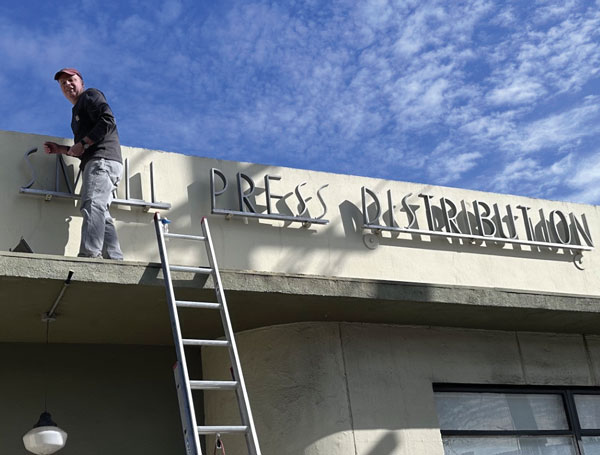In a ruling issued October 3, Judge Elizabeth Riles of the Superior Court of Alameda County (Calif.) partially granted a motion filed by Small Press Distribution to consolidate all claims in the not-for-profit distributor’s dissolution proceedings. The ruling means that the fate of the claims now lies with the court. The motion was made, the filing states, “to ensure an orderly process in the windup and dissolution of SPD.”
In approving SPD’s motion, Riles applied three caveats, the most important of which was to extend a deadline for all creditors to file claims until October 10. (Creditors had originally been given until August 8 to file claims.) Meanwhile, a host of claims by publishers and other vendors have been rejected by SPD’s attorney for lack of sufficient documentation or information from SPD’s records. But a source familiar with the proceedings said some presses are having trouble substantiating their claims, in part because of a lack of information from the distributor.
The ruling comes after SPD announced its abrupt closure in late March and filed a notice of dissolution with the California attorney general’s office. In the ensuing weeks and months, former SPD clients have wrestled with the fallout, scrambling to find new distributors and to reclaim their stock from SPD’s warehouse. Court documents show that SPD has outstanding balances with 163 publishers who are due a total of more than $316,000, in amounts ranging from $5 to $34,000.
The filings acknowledge the balance could be higher but said SPD does not have the ability to estimate additional balances because its tracking system of sales and returns has been discontinued. Meanwhile, the shutdown of the tracking system is also preventing publishers from learning if they have any orders that were placed with SPD before it shut down, a source noted.
The filings also present a little more detail on the unravelling of SPD. They repeat previous claims that in 2023 it saw donations fall by $125,000 from previous levels. That shortfall came after SPD’s revenue had declined during the pandemic, and the company was only able to continue operating after it received funding through the Small Business Administration Paycheck Protection Loan allowing staff to be retained. SPD also received a separate $150,000 SBA loan to help build back its operations, for which it still owes over $144,000. In addition, the filings show SPD owes 58 other vendors “at least” $26,000, and that its last executive director, Kent Watson, has filed a claim for $104,000 that he says he is owed under his employment contract. SPD’s cash balance as of April 30 was just over $73,000 and accounts receivable was roughly $114,000. Given all its financial challenges, the filings state SPD had no alternative other than to dissolve its business with judicial supervision.
Since the collapse of SPD, the Council of Literary Presses and Magazines has been working with publishers to navigate a host of issues, from finding new distributors to filing a complaint with the California attorney general’s office. According to California law, for a nonprofit corporation’s dissolution to be completed, it must send a letter to the attorney general’s office confirming that all objections to the proposed dissolution and distribution of assets have been waived. At that point, the secretary of state will finalize the dissolution.
Given the various requirements, it is expected that SPD’s case will not be completed until sometime in 2025. And given the condition of SPD’s finances, it appears that publishers and other vendors are unlikely to collect much of what is owed to them.
To provide publishers an overview of how the SPD dissolution process is proceeding, CLMP has planned a virtual meeting for October 18 at 4 p.m. ET, which is open to all publishers (not only CLMP members). During the meeting, CLMP will give updates, share survey results of how former SPD clients are faring, and look at potential new funding opportunities.
“Since the news about SPD’s closure was announced, CLMP has been working tirelessly to help these presses get back on their feet,” said CLMP executive director Mary Gannon, “and we’re committed to continuing to offer transitional support to them with the hope that they’ll not only stabilize but emerge from this crisis in a stronger position.”
A version of this article appeared in the 10/14/2024 issue of Publishers Weekly under the headline: Court Takes Charge of SPD Claims
